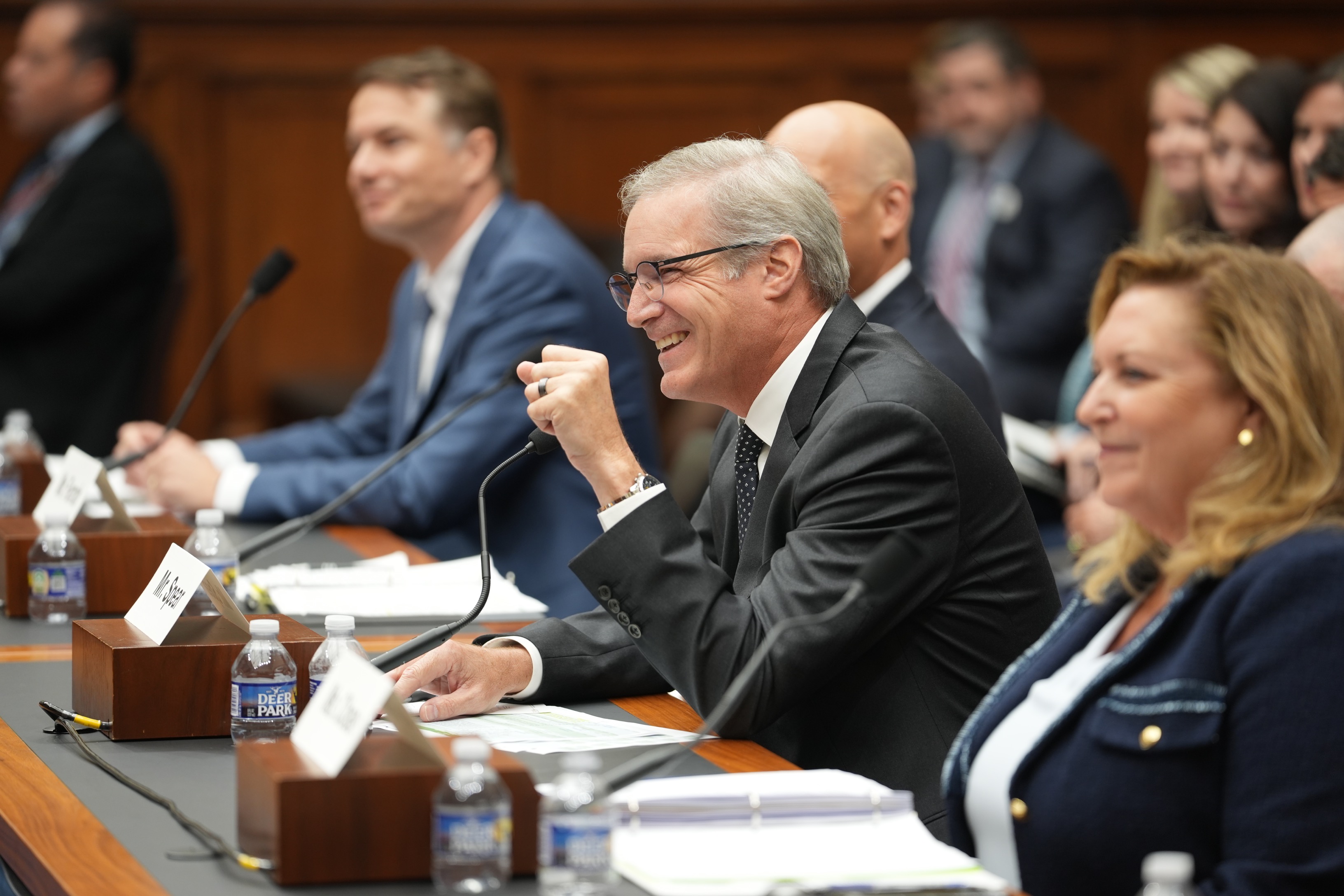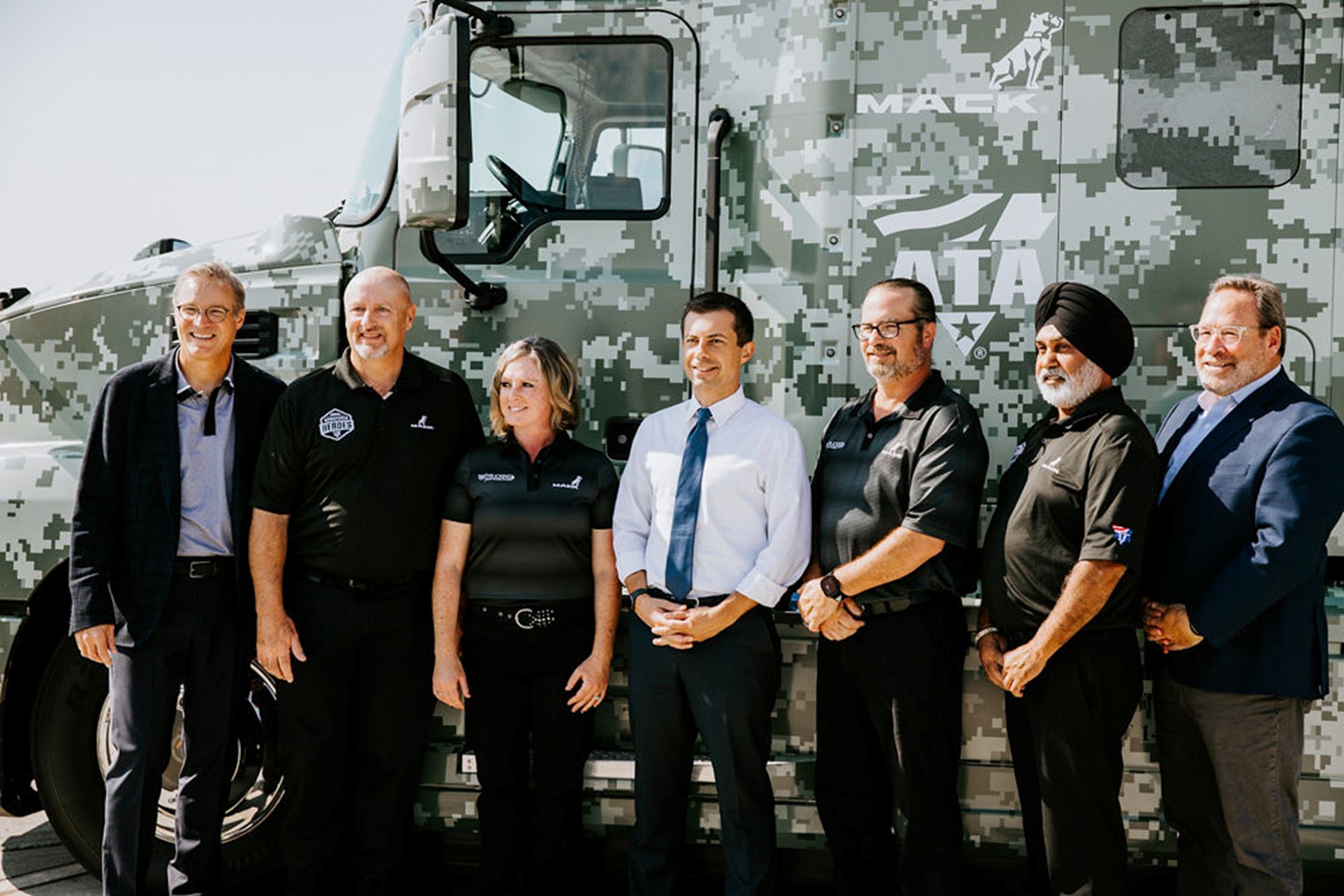
Spear testifying at House Transportation and Infrastructure Committee on 9.13.23
ATA President and CEO Chris Spear was back on Capitol Hill this week testifying before lawmakers on the issues impacting our industry and the nation's economy. It's the sixth Congressional hearing or roundtable ATA has participated in this year, ensuring our members have a voice and hand in shaping policies that determine the future of trucking.
While many stakeholder groups struggle to get traction in this current political environment, ATA's constant presence in the halls of power is why we succeed as an advocacy organization in advancing the interests of our members and notching wins for America’s trucking industry.
The U.S. House Transportation and Infrastructure Committee invited ATA to testify on future of autonomous commercial vehicles and their impact on society, the supply chain, and U.S. competitiveness in the global economy. Spear pressed upon lawmakers to account for AV's enormous potential to support drivers, grow the economy, and dramatically reduce roadway accidents and fatalities. Among the takeaways:
Dispelling the displacement myth
Contrary to alarmist notions that drivers will be displaced by AVs, this driver-assist technology holds enormous potential to improve drivers' productivity, safety, quality of life, and job satisfaction. The significance of National Truck Driver Appreciation Week is underscored by how in-demand these professionals are: The industry already faces a significant driver shortage, reaching a record-high 78,000 in 2022. We must hire 1.2 million new drivers over the next decade to fill retirements and keep pace with the nation's growing demand for freight transportation.
By reducing hardships of the job, AV technology is instrumental to attracting the next generation of trucking talent. Trucking will continue to need more drivers, coupled with innovation, to keep supply chains moving in the years and decades ahead. Securing cargo and ensuring the movement of hazardous materials, livestock and produce—particularly in extreme weather conditions—are factors that will undoubtedly require a driver, superseding the values of automation.

Professional drivers with America’s Road Team meet with Secretary Buttigieg in South Dakota during NTDAW
Building a National Framework
To fully harness their economic and safety benefits, the country needs a national framework that encourages the development, testing, and deployment of Avs in direct support of interstate commerce. A state-by-state patchwork will not suffice. Passenger cars and commercial vehicles must be treated equally, and the framework should be performance based, requiring AVs to achieve a high level of safety, rather than mandating the use of any one specific technology.
The benefits of this technology are recognized globally, and the United States is now competing with adversaries like China to leverage them. ATA encourages Congress and federal agencies to develop policies that foster innovation and ensure America does not fall behind global competitors in the development of this strategically vital technology.
The Road to Zero
Automated driving systems are the next step in the evolution of safety technology. Given that human error is a factor in 94% of all vehicle crashes, automated and connected vehicle technology can work together to further reduce or even eliminate these accidents. With these innovations, improvements in safety are only the beginning; we can also make meaningful advances in other important policy areas like reducing traffic congestion and cutting emissions nationwide.
Bottom Line
From its inception, the trucking industry has been driven by innovation. It remains key to our future and nation’s economic growth. ATA will continue advocating for policies that foster innovation, strengthen our workforce, improve safety, and maintain America’s standing in the world – this week and every other of the year.